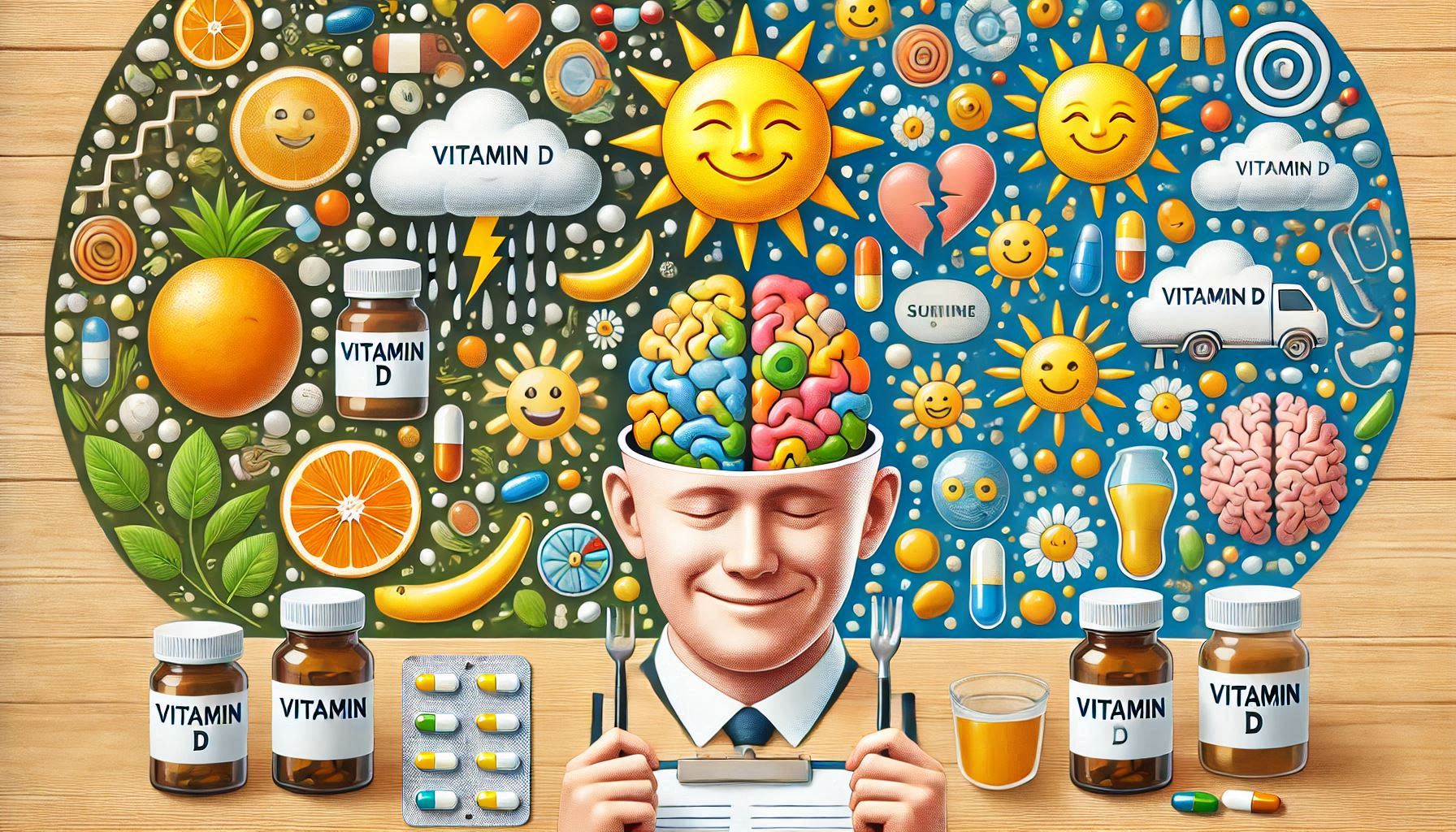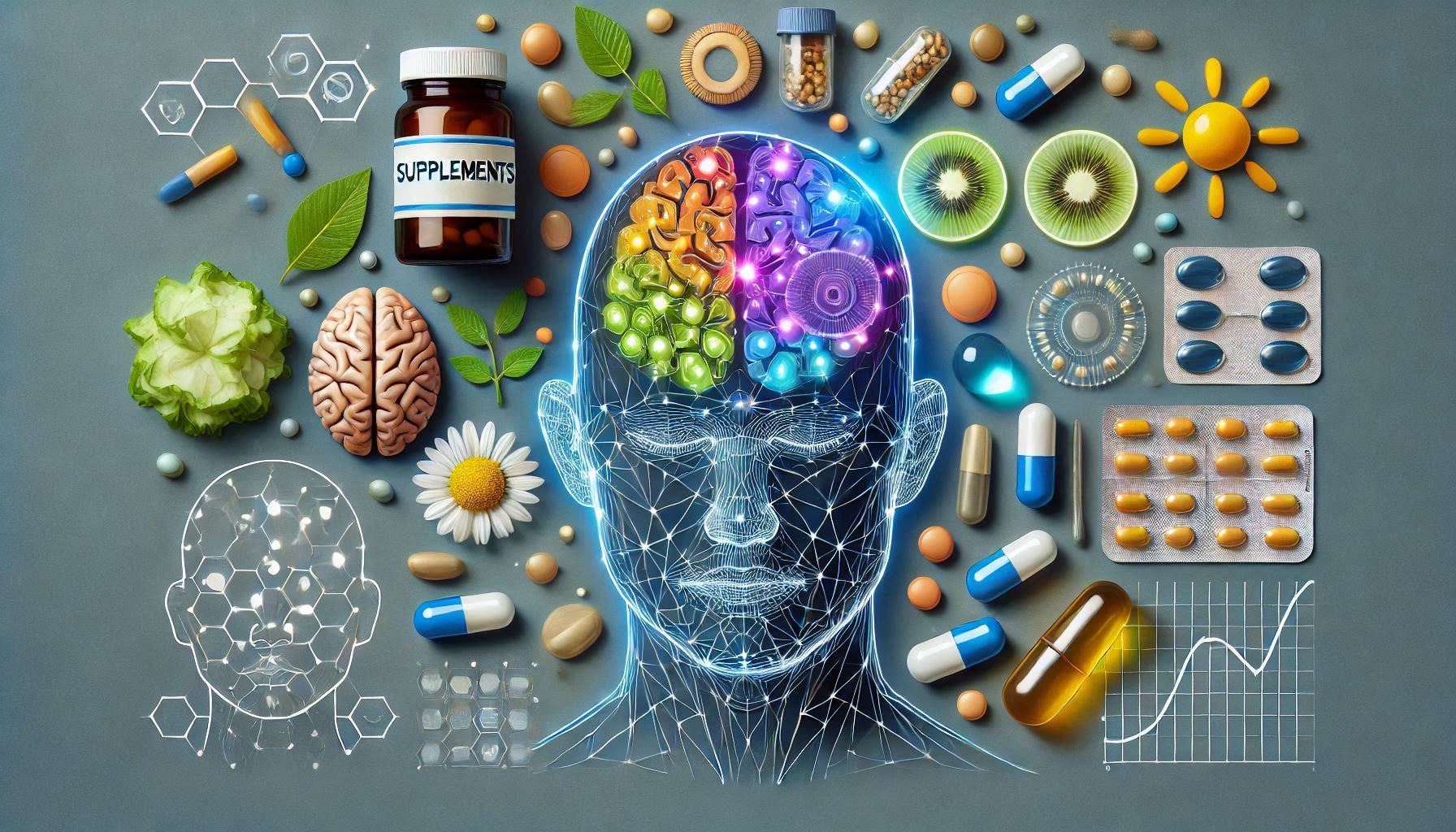The Impact of Caffeine and Stimulant Supplements on Health
Caffeine is one of the most widely consumed psychoactive substances in the world. Found in coffee, tea, energy drinks, and various supplements, caffeine is primarily known for its stimulating effects, which include increased alertness and energy. Beyond caffeine, stimulant supplements have become increasingly popular, particularly among athletes and individuals seeking to boost performance, enhance focus, or combat fatigue. While stimulant-based supplements, particularly those containing caffeine, can offer several benefits in terms of energy and performance enhancement, their overuse and excessive consumption can have significant health risks.
This article aims to explore the impact of caffeine and stimulant supplements on health by delving into their pros and cons, their benefits, and the associated health risks. We will examine the science behind their effectiveness, their impact on the body, and the potential consequences of excessive intake.
The Science of Caffeine and Stimulants
Caffeine is a central nervous system stimulant that works by blocking adenosine receptors in the brain. Adenosine is a neurotransmitter responsible for promoting relaxation and sleep. When caffeine blocks these receptors, it reduces feelings of fatigue and increases alertness. This mechanism explains why caffeine can enhance cognitive performance, improve mood, and increase wakefulness. Additionally, caffeine stimulates the release of certain neurotransmitters like dopamine and norepinephrine, which can further enhance focus and motivation.
Other common stimulants used in supplements include synephrine, yohimbine, theobromine, and guarana, which all act to increase metabolic rate, improve fat oxidation, and boost overall energy levels. Many of these stimulants work by activating certain receptors in the body to elevate heart rate, increase blood flow to muscles, and enhance physical performance.
Pros of Caffeine-Based Supplements
1. Enhanced Physical Performance
One of the primary reasons athletes and fitness enthusiasts use caffeine-based supplements is the potential to enhance physical performance. Caffeine has been shown to increase endurance, strength, and power output during exercise. The stimulant helps by mobilizing fatty acids from fat tissues, making them available for energy production. This results in the sparing of muscle glycogen, allowing the body to rely on fat as a fuel source for longer periods during exercise, which is especially beneficial during endurance sports such as running, cycling, and swimming.
Several studies have demonstrated that caffeine can improve aerobic performance (e.g., long-distance running, cycling) and anaerobic performance (e.g., sprinting, weight lifting). For example, a study published in the Journal of Strength and Conditioning Research found that athletes who consumed caffeine before a workout experienced greater improvements in strength and endurance compared to those who did not consume caffeine (Doherty & Smith, 2004).
2. Increased Mental Alertness and Focus
Caffeine is perhaps most famous for its ability to increase mental alertness. By blocking adenosine receptors and increasing the levels of excitatory neurotransmitters like dopamine and norepinephrine, caffeine can improve focus, concentration, and cognitive function. This is particularly useful for individuals needing to stay alert for long periods, such as shift workers, students preparing for exams, or professionals in demanding jobs.
In addition to improving short-term cognitive performance, some studies suggest that caffeine can enhance memory consolidation, making it easier to retain and recall information. For example, a study in Nature Neuroscience found that caffeine intake improved the ability to remember visual information in the short term (Borota et al., 2014).
3. Fat Loss and Increased Metabolism
Caffeine is also known for its ability to boost metabolism and increase fat burning. This effect is why caffeine is a common ingredient in many fat-burning supplements and weight loss pills. Caffeine increases thermogenesis (heat production in the body), which results in a higher calorie expenditure. Additionally, caffeine can enhance lipolysis, the breakdown of fat cells into fatty acids that can be used for energy. This makes it an attractive supplement for individuals trying to reduce body fat.
A study published in The American Journal of Clinical Nutrition showed that caffeine consumption increased the metabolic rate by up to 11%, leading to greater fat oxidation (Tremblay et al., 1995). The combination of caffeine and other ingredients, such as green tea extract or L-carnitine, can further amplify these fat-burning effects.
4. Improved Mood and Reduced Perceived Effort
In addition to enhancing cognitive function and physical performance, caffeine has mood-enhancing properties. It can help improve feelings of well-being and reduce the perception of effort during physical activities. This effect is thought to be linked to the release of neurotransmitters like dopamine and serotonin, which are associated with improved mood and motivation.
Caffeine can also act as a mild antidepressant, and some studies have shown a correlation between caffeine intake and a reduced risk of depression. This is especially beneficial for individuals dealing with mental fatigue or low mood during exercise, as caffeine can provide a boost in motivation and overall enthusiasm.
Cons of Caffeine-Based Supplements
1. Insomnia and Sleep Disturbances
While caffeine can improve alertness and reduce fatigue, excessive consumption can have significant drawbacks, particularly when consumed too close to bedtime. Since caffeine blocks adenosine receptors, it can interfere with the body’s natural sleep-wake cycle. High doses or late-day consumption of caffeine can lead to difficulty falling asleep, decreased sleep quality, and insomnia.
A study published in Sleep Medicine Reviews concluded that caffeine intake, particularly in the late afternoon or evening, can disrupt sleep patterns and significantly reduce the quality of sleep (Clark & Landolt, 2017). This disruption in sleep, in turn, can negatively affect overall health, impair cognitive function, and reduce athletic performance over time.
2. Anxiety and Jitters
One of the most commonly reported side effects of caffeine consumption is the feeling of anxiety, jitteriness, or nervousness. This effect is due to caffeine’s stimulating properties, which can elevate heart rate and blood pressure. For some individuals, especially those who are sensitive to caffeine or consume it in large quantities, these effects can be pronounced, leading to discomfort and impaired performance.
In higher doses, caffeine can also exacerbate symptoms of anxiety disorders or trigger panic attacks. A study published in The Journal of Clinical Psychiatry found that high doses of caffeine (above 400 mg) increased anxiety levels in individuals prone to anxiety disorders (Smith, 2002).
3. Gastrointestinal Issues
Caffeine can irritate the gastrointestinal tract, particularly when consumed in large amounts or on an empty stomach. It can increase the production of stomach acid, leading to acid reflux, heartburn, or gastric ulcers in some individuals. Caffeine’s diuretic effects can also lead to dehydration, which can contribute to constipation and other digestive problems.
For people with pre-existing gastrointestinal conditions, such as irritable bowel syndrome (IBS) or acid reflux, caffeine intake may exacerbate symptoms, making it necessary to limit or avoid stimulant-based supplements.
4. Dependence and Withdrawal
One of the major downsides of regular caffeine consumption is the potential for dependence. The body can become accustomed to the stimulant effects of caffeine, leading to tolerance. This means that over time, individuals may need to consume higher doses of caffeine to achieve the same stimulating effects.
When caffeine consumption is suddenly reduced or eliminated, withdrawal symptoms can occur. These symptoms can include headaches, irritability, fatigue, and difficulty concentrating. These withdrawal effects can be particularly problematic for individuals who rely on caffeine to boost energy and cognitive performance.
5. Increased Risk of Heart Issues
Excessive caffeine intake has been linked to an increased risk of cardiovascular problems in some individuals. Caffeine can temporarily raise heart rate and blood pressure, which can be dangerous for individuals with pre-existing heart conditions. For example, a study published in the Journal of the American College of Cardiology found that consuming more than 400 mg of caffeine per day was associated with an increased risk of arrhythmias and other heart issues (Kizer et al., 2009).
While moderate caffeine intake is generally considered safe for most healthy adults, individuals with high blood pressure, arrhythmias, or other heart conditions should be cautious about consuming stimulant supplements.
Health Risks Associated with Excessive Stimulant Consumption
While moderate caffeine consumption is generally safe for most individuals, excessive use of caffeine and other stimulant supplements can lead to serious health risks. These include:
- Cardiovascular Issues: As mentioned, high doses of caffeine can elevate heart rate and blood pressure, potentially leading to arrhythmias, heart palpitations, and other cardiovascular issues. Excessive stimulant use can put unnecessary strain on the heart and increase the risk of heart disease.
- Dehydration: Many stimulant supplements, particularly those that include caffeine, have diuretic effects, meaning they promote increased urination. This can lead to dehydration if individuals do not compensate for the fluid loss by drinking enough water. Dehydration can lead to dizziness, fatigue, and impaired performance during exercise.
- Overstimulation of the Nervous System: Stimulants work by activating the central nervous system, which can lead to symptoms such as anxiety, restlessness, and difficulty relaxing. Chronic overstimulation can result in burnout, nervous exhaustion, and other mental health issues.
- Impaired Sleep Quality: As previously discussed, stimulants like caffeine can interfere with sleep quality. Chronic sleep disturbances can lead to a weakened immune system, decreased cognitive function, and impaired physical performance. Sleep deprivation also increases the risk of chronic conditions like obesity, diabetes, and cardiovascular disease.
- Addiction and Withdrawal: Regular consumption of high doses of caffeine or other stimulants can lead to dependency, as the body becomes reliant on the stimulant to function. Sudden cessation can result in withdrawal symptoms, making it difficult for individuals to break the cycle of dependence.
Precautions for Caffeine and Stimulant Supplement Use
While caffeine and other stimulant supplements can provide numerous benefits such as increased alertness, improved physical performance, and enhanced focus, their use should be approached with caution. There are several precautions that individuals should keep in mind to avoid adverse effects and ensure safe consumption.
1. Understand Personal Tolerance Levels
Not everyone reacts to caffeine and stimulants in the same way. While some individuals may have a high tolerance and can safely consume larger doses, others may be more sensitive to even small amounts. It’s important to understand your body’s response to caffeine and stimulants before increasing intake. Signs of intolerance may include jitteriness, anxiety, headaches, or an elevated heart rate.
Precaution: Start with a small amount of caffeine or stimulant supplement, especially if you’re new to using them, and gradually increase the dose if needed, monitoring how your body responds. If any adverse effects are experienced, reduce the dosage or stop use.
2. Avoid Excessive Consumption
Excessive intake of caffeine or stimulant-based supplements can have serious side effects, including anxiety, insomnia, heart palpitations, digestive issues, and dehydration. The general guideline is to limit caffeine consumption to no more than 400 milligrams per day (about four 8-ounce cups of coffee) for most healthy adults, though some individuals may need to consume less.
Precaution: Avoid consuming excessive amounts of caffeine or stimulants, especially in a short period. For instance, combining multiple sources of caffeine (e.g., coffee, energy drinks, supplements) can quickly lead to overconsumption. Always check the caffeine content in energy drinks or supplements and avoid exceeding safe limits.
3. Timing Matters: Avoid Late-Day Stimulant Use
Because caffeine has a half-life of about 3 to 5 hours, consuming it later in the day can interfere with your sleep. Stimulants can remain active in the body for hours, potentially leading to insomnia or disrupted sleep patterns, which can impair cognitive function and performance the following day.
Precaution: Avoid consuming caffeine or stimulant supplements in the late afternoon or evening. If you need a boost in the evening for a workout or a long study session, consider using a milder source of caffeine, such as tea, or opt for other non-stimulant alternatives.
4. Monitor for Potential Side Effects
Some people experience side effects such as headaches, jitteriness, rapid heart rate, and digestive discomfort after using stimulant supplements. These side effects may indicate that the dosage is too high or that the body is reacting negatively to the stimulant.
Precaution: If you experience side effects such as dizziness, anxiety, stomach upset, or a racing heart, reduce or stop the stimulant intake. In severe cases, consult with a healthcare professional to assess whether stimulant use is appropriate for you.
5. Be Cautious with Pre-Workout Supplements
Pre-workout supplements often contain not only caffeine but other stimulants such as synephrine, yohimbine, or beta-alanine. These additional stimulants can amplify the effects of caffeine, potentially leading to overstimulation, dehydration, and cardiovascular stress.
Precaution: When using pre-workout supplements, ensure you are aware of all the ingredients and their caffeine content. It may be wise to limit the use of other caffeinated products on the same day you are consuming pre-workout supplements to avoid overstimulation. Stick to recommended serving sizes, and avoid combining multiple stimulant-based products.
6. Stay Hydrated
Caffeine is a diuretic, meaning it can increase urine production and contribute to dehydration. For athletes or individuals using stimulants during workouts, dehydration can reduce performance and increase the risk of injury or heat-related illness.
Precaution: Drink plenty of water throughout the day, particularly when consuming caffeine or stimulant supplements, to prevent dehydration. Ensure adequate hydration before, during, and after exercise, especially if you’re taking stimulants that can increase fluid loss.
7. Avoid Stimulants if You Have Certain Medical Conditions
Individuals with certain health conditions, such as high blood pressure, heart problems, anxiety disorders, or gastrointestinal issues, may be at higher risk for complications when using caffeine and stimulant supplements. Stimulants can increase heart rate and blood pressure, which could exacerbate conditions such as arrhythmias, hypertension, or anxiety disorders.
Precaution: If you have a pre-existing medical condition, particularly involving the heart, blood pressure, or anxiety, consult a healthcare provider before using caffeine or stimulant-based supplements. People with a history of ulcers, acid reflux, or gastrointestinal issues should also be cautious, as stimulants can irritate the digestive system.
8. Be Cautious with Stimulant Combinations
Many energy drinks and fat-burning supplements combine caffeine with other stimulants, such as synephrine, guarana, or theobromine, which can enhance the stimulating effects and increase the likelihood of side effects. Additionally, combining stimulants with alcohol can mask the depressant effects of alcohol, leading to an increased risk of alcohol poisoning.
Precaution: Avoid combining stimulant-based supplements with other stimulants, and be cautious when consuming stimulants with alcohol or other substances that affect the central nervous system. Always check the ingredient labels for warnings about combining stimulants with other products.
9. Understand Potential Interactions with Medications
Caffeine and other stimulants can interact with various medications, especially those used for heart conditions, mental health disorders, and other chronic conditions. For example, stimulants can interact with antidepressants, antipsychotic medications, and medications for hypertension, leading to enhanced side effects or reduced efficacy of the medications.
Precaution: If you are taking prescription or over-the-counter medications, particularly for heart conditions, depression, or anxiety, consult with a healthcare provider before using caffeine or stimulant supplements. Inform your doctor about all supplements you are using to avoid potential interactions.
10. Pregnant and Breastfeeding Women
Pregnant women and those who are breastfeeding should exercise caution when consuming caffeine. High caffeine intake during pregnancy has been linked to an increased risk of miscarriage, low birth weight, and developmental delays. Additionally, caffeine passes into breast milk, which can affect the infant’s sleep patterns and overall development.
Precaution: Pregnant or breastfeeding women should limit caffeine intake to a maximum of 200 milligrams per day (about one 12-ounce cup of coffee). It is best to avoid stimulant-based supplements unless cleared by a healthcare professional.
11. Monitor Long-Term Use and Dependency
Regular use of stimulant supplements, especially caffeine, can lead to tolerance and dependence. Over time, individuals may need higher doses to achieve the same effects, and sudden cessation can lead to withdrawal symptoms, including headaches, irritability, and fatigue.
Precaution: Avoid long-term overuse of stimulants. Take periodic breaks from caffeine or stimulant-based supplements to prevent tolerance and dependence. If you find yourself relying on caffeine or other stimulants to function, consider reducing intake gradually or discussing alternatives with a healthcare provider.
Conclusion
Caffeine and stimulant supplements have both positive and negative impacts on health. When used appropriately and in moderation, they can enhance physical performance, improve mental alertness, aid in fat loss, and provide a temporary boost in mood. However, excessive use of caffeine and other stimulants can lead to a range of adverse effects, including anxiety, gastrointestinal problems, insomnia, cardiovascular issues, and dependence.
For individuals looking to boost performance or energy levels, it is important to use stimulant-based supplements responsibly and to be mindful of the potential risks associated with overconsumption. Consulting a healthcare professional or nutritionist can help ensure that stimulant use is tailored to individual needs and health status. Moderation, proper timing, and awareness of personal tolerance levels are key to maximizing the benefits of caffeine and stimulant supplements while minimizing their potential harms.
SOURCES
Borota, D., & Manelis, A. (2014). Caffeine enhances memory consolidation in humans. Nature Neuroscience, 17(6), 1097-1103.
Clark, I., & Landolt, H. P. (2017). Caffeine, sleep and the circadian system. Sleep Medicine Reviews, 31, 2-10.
Doherty, M., & Smith, P. M. (2004). Effects of caffeine ingestion on exercise testing: A meta-analysis. Journal of Strength and Conditioning Research, 18(4), 746-756.
Kizer, J. R., Epstein, M., & Frohlich, E. D. (2009). Caffeine and cardiovascular disease. Journal of the American College of Cardiology, 54(1), 49-58.
Smith, A. (2002). Effects of caffeine on human behavior. Food and Chemical Toxicology, 40(9), 1243-1255.
Tremblay, A., Simoneau, J. A., & Bouchard, C. (1995). Effect of caffeine on energy expenditure and fat oxidation. The American Journal of Clinical Nutrition, 61(5), 767-772.
Mayo Clinic. (2020). Caffeine: How much is too much? Mayo Clinic.
National Institutes of Health. (2021). caffeine. MedlinePlus.
Smith, M. A. (2002). Effects of caffeine on anxiety. Journal of Clinical Psychiatry, 63(3), 207-212.
Wirtz, P. H., & Weder, N. (2017). Caffeine consumption and its effects on health: A review of the literature. The American Journal of Clinical Nutrition, 105(3), 583-589.
HISTORY
Current Version
November, 28, 24
Written By
BARIRA MEHMOOD












